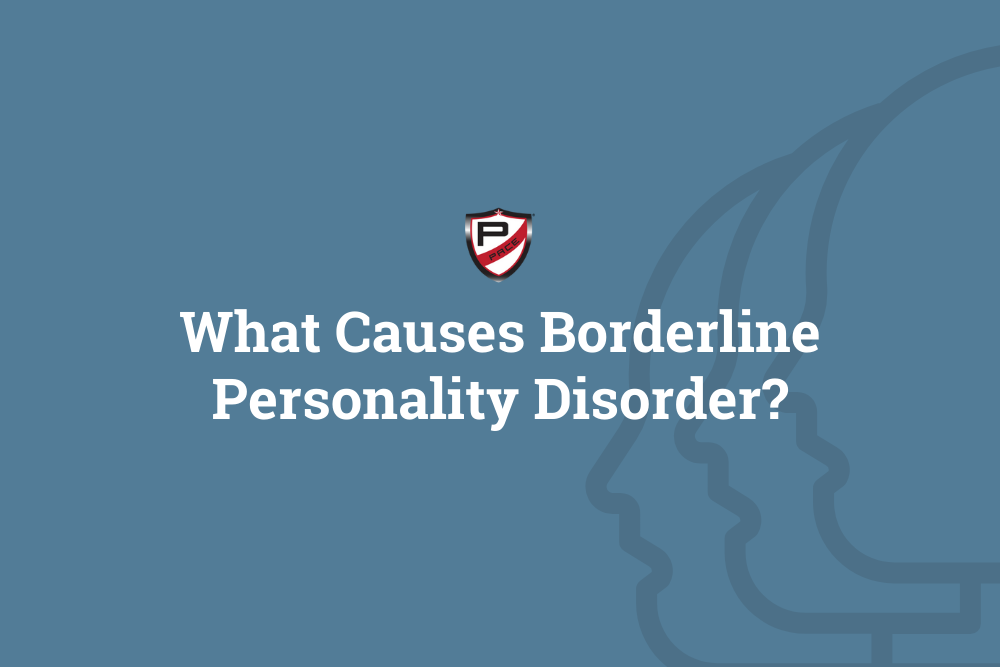Borderline personality disorder (BPD) is a mental health condition that affects how a person interacts with others, as well as their ability to regulate emotions. BPD can be difficult to diagnose since its symptoms may be attributed to other mental health issues such as anxiety, depression, bipolar disorder, or psychosis. In today’s blog, we’ll explore the symptoms of borderline personality disorder in men. We’ll also discuss the treatment options available for men struggling with this disorder.
Recognizing BPD
There is no definitive test to diagnose borderline personality disorder. Because of this, medical and mental health professionals rely on comprehensive interviews and observations to confirm the presence of BPD. After interviewing the client, the clinician will reach out to his previous providers, family, or friends for stories that provide more insight. They will also review medical records to observe patterns in behavior and symptoms.
As this medical professional gathers information related to the client’s thoughts and behaviors, they look for key indicators¹ of borderline personality disorder, including:
- Fear of abandonment by friends and family
- Drastic changes in perception regarding relationships
- Distorted self-concept that affects mood, goals, relationships, values, and opinions
- Lack of impulse control
- Suicidal ideation or past attempts
- Intense emotions lasting for a few hours to a few days
- Uncontrollable anger
- Feelings of dissociation (disconnection from reality)
- Paranoia
Causes of Borderline Personality Disorder
Like most mental health diagnoses, it’s difficult to attribute BPD to a singular cause. Instead, there are a few contributing factors that lead to this condition. These catalysts fall into three main categories: genetic, environmental, and cerebral.
Genetic Components
Men who have a family history of mental illness, specifically borderline personality disorder, have a higher likelihood of developing BPD themselves. Studies² have shown that there is an increased risk a child will develop a personality disorder if a close relative also has this diagnosis.
Environment
A common question about mental illness is whether this is something you are born with or a product of your environment. The truth is, it’s often a combination of both factors. Trauma, instability in the home, and abuse all contribute to a person developing mental health issues like BPD. It’s nearly impossible to point to one event that caused a personality disorder. Instead, mental health professionals look at the broader scope of a person’s life when issuing a diagnosis.
Brain Function and Structure
Research³ has shown that people with BPD may exhibit physical changes in their brains. These structural and functional differences are especially prominent in the areas that regulate emotion and help control impulses. This research suggests there is a neurological component to borderline personality disorder. However, researchers are unsure if the disorder causes brain changes or vice versa.
BPD Treatment for Men at PACE Recovery Center
If you or a loved one have been diagnosed with borderline personality disorder or a similar mental health condition, there is help available to you at PACE Recovery Center. Our mental health treatment facility offers outpatient and residential care in Orange County, California. We specialize in the treatment of men, helping them achieve academic and vocational goals while in our programs.
If you’re interested in learning more about our mental health treatment options, contact our admissions staff today.
References:
- https://www.nami.org/About-Mental-Illness/Mental-Health-Conditions/Borderline-Personality-Disorder
- Czajkowski N, Aggen, et al. A Twin Study of Normative Personality and DSM-IV Personality Disorder Criterion Counts: Evidence for Separate Genetic Influences. Am J Psychiatry. 2018 Jul 1;175(7):649-656.
- Katherine S. Pier, MD, Lea K. Marin, MD, MPH, Jaime Wilsnack, MA, Marianne Goodman, MD. The Neurobiology of Borderline Personality Disorder. Psychiatric Times, Vol 33 No 3, Volume 33, Issue 3



